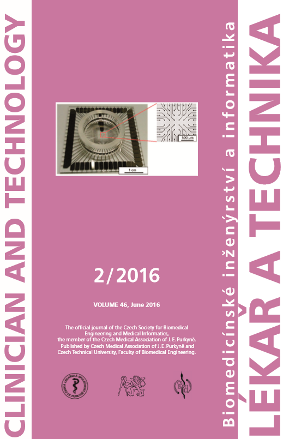EARLY DISCHARGE (48–72 HOURS) AFTER ACUTE ST-SEGMENT ELEVATION MYOCARDIAL INFARCTION: INTERIM RESULTS OF THE OPEN, RANDOMIZED, MONOCENTRIC STUDY
Keywords:
myocardial infarction with ST-segment elevation, primary percutaneous coronary intervention, low risk, early discharge, feasibility, safetyAbstract
Authors present the interim analysis of open, prospective, randomized study, comparing the strategy of early (48–72 hours) and standard (after 72 hours) discharge in low risk patients after myocardial infarction with ST-segment elevation (STEMI), treated with successful primary percutaneous coronary intervention (PCI). 91 patients (22.5% of all STEMI patients admitted within the period between October 15, 2013 and October 6, 2015), who fulfilled given inclusion criteria of low risk, were randomly assigned to two groups in a 1:1 ratio. The primary end point was the composite of death, myocardial infarction (MI), unstable angina, stroke, unplanned rehospitalization, repeated target vessel revascularization, stent thrombosis within 90-day follow-up. The length of stay was significantly shorter in the intervention group (63.0 ± 7.8 h vs. 91.1 ± 11.9 h, p < 0.0001). The primary end point at 3 months occurred in 3 patients assigned to intervention group as compared to 2 patients assigned to control group (6.4% vs. 4.5%, p = 1.0 for non-inferiority). There were no significant differences in the incidence rates of individual components of the primary end point at 90 days. Presented interim data of the study support the claim that early discharge (48–72 hours) in selected patients after STEMI, treated with successful primary PCI, is possible and safe, with the results comparable to the later discharge, realized in compliance with current guidelines and present everyday clinical practice.
Downloads
Published
Issue
Section
License
Copyright (c) 2017 Kamil Novobílský, Radim Kryza, Petr Černý, Ivo Horák, Vladimír Kaučák, Jan Mrózek, Roman Štípal

This work is licensed under a Creative Commons Attribution 4.0 International License.
Authors who publish with this journal agree to the following terms:
- Authors retain copyright and grant the journal right of the first publication with the work simultaneously licensed under a Creative Commons Attribution License (https://creativecommons.org/licenses/by/4.0/) that allows others to share the work with an acknowledgment of the work's authorship and initial publication in CTJ.
- Authors are able to enter into separate, additional contractual arrangements for the non-exclusive distribution of the journal’s published version of the work (e.g., post it to an institutional repository or publish it in a book), with an acknowledgment of its initial publication in this journal.
- Authors are permitted and encouraged to post their work online (e.g., in institutional repositories or on their website or ResearchGate) prior to and during the submission process, as it can lead to productive exchanges.
CTJ requires that all of the content of the manuscript has been created by its respective authors or that permission to use a copyrighted material has been obtained by the authors before submitting the manuscript to CTJ. CTJ requires that authors have not used any copyrighted material illegally, as for example a picture from another journal or book, a photo, etc. It is the author’s responsibility to use only materials not violating the copyright law. When in doubt, CTJ may ask the authors to supply the pertinent permission or agreement about the use of a copyrighted material.
The opinions expressed in CTJ articles are those of authors and do not necessarily reflect the views of the publishers or the Czech Society for Biomedical Engineering and Medical Informatics.


